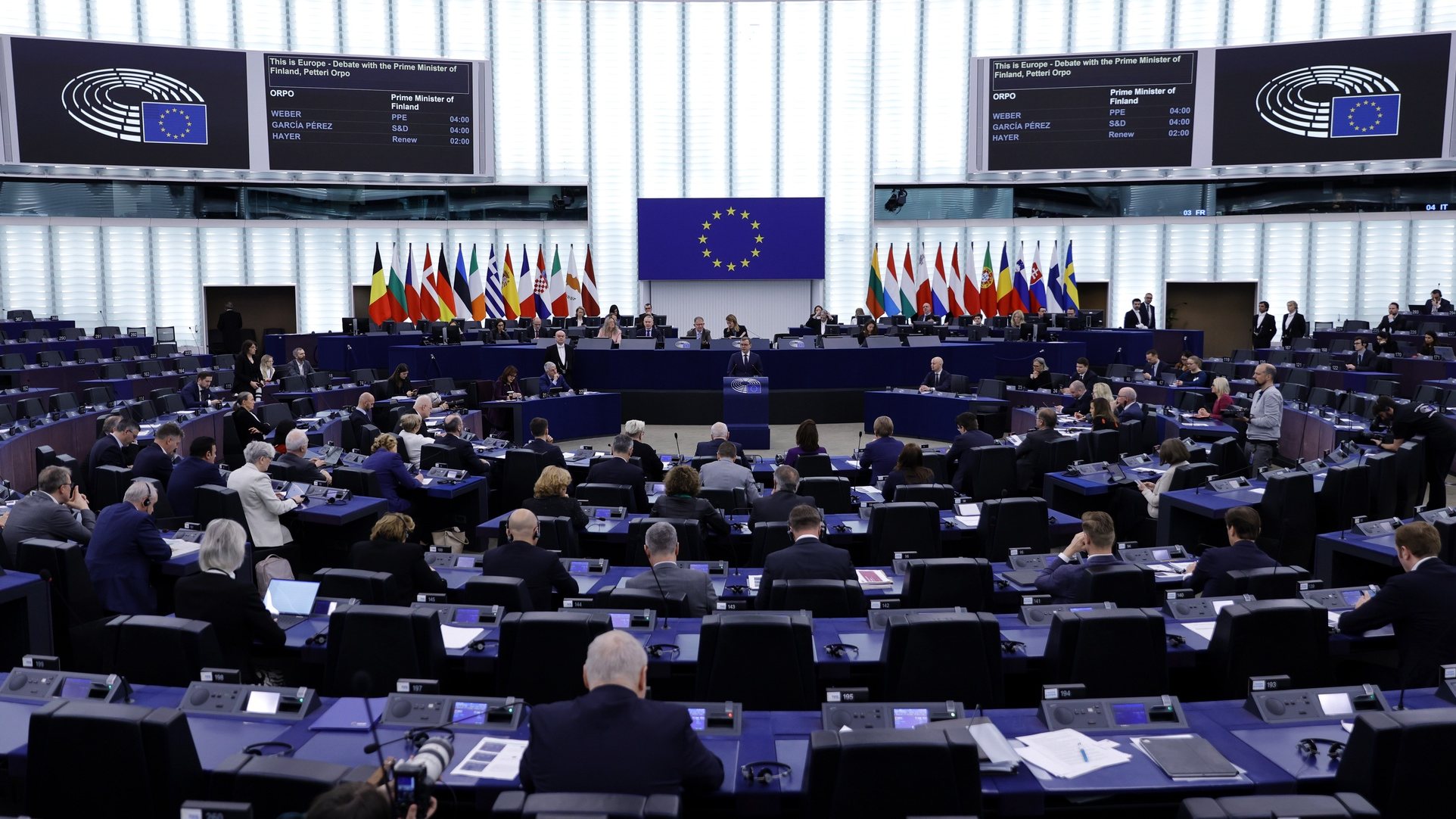The percentage of respondents who affirm that Portugal benefited from joining the community space reached a “historic high”, with answers of over 90% to a question that has been asked since 1986.
Portugal is among the most pro-European Union (EU) countries, mainly supporting the accession of Ukraine and defending more decisions on the Palestinian-Israeli conflict, according to the European Politics Barometer published this Wednesday.
The study, carried out for the Francisco Manuel dos Santos Foundation in early 2024 through 1,107 interviews with residents of mainland Portugal over 18 years of age, was published on the eve of Europe Day.
The percentage of respondents who say Portugal benefited from joining the community space reached a “historic high”, with responses greater than 90% to a question that has been asked in the Eurobarometers since 1986, while support for the euro, questioned since 2009, is affirmed by more than 70%.
Regarding the image of the European institutions, the downward trajectory of the evaluation between 2000 and the years of the economic crisis was recalled, with currently a positive image (52.3%) of the European Parliament (EP), the European Commission (EC) and the European institutions. Central bank .
Portugal (with an average of 56.3% between 2000 and 2023) also demonstrates trust in institutions above the European average (50.7%)which, according to the study, reflects the country’s position among the most pro-European states.
“Trust in European political institutions is much greater than trust in national institutions, such as Parliament or the Government,” reads the study, which shows that approximately one in three respondents say they trust the national level, compared to to approximately two in three who express confidence. in the EP and the EC.
Women and respondents aged 55 and over and those with higher education tend to evaluate the image of the European institutions better and trust them more.
Although, Regarding the action of institutions in the face of challenges, the response is more negativewith greater dissatisfaction demonstrated in relation to the reduction of poverty and inequalities, the Palestinian-Israeli conflict, “matters in relation to which less than a third say they are satisfied” with the community response.
The greatest dissatisfaction is recorded among the youngest, those surveyed with a lower educational level and those who are ideologically right-wing.
Respondents advocated greater European decision-making on the Israeli-Palestinian conflict, third-country immigration, climate change and the war in Ukraine, with a preference for national decisions on issues such as poverty and inequalities.
44.5% of those surveyed support more accessions to the 27 and 38.8% are opposedand Ukraine (58%) obtained the highest number of preferences.
When asked about the influence on EU decisions in terms of countries, 74.5% point to Germany, followed by France (13.3%) and Belgium (2.3%).
More than 83% indicate that the EU should have the right to expel members whose governments habitually ignore democratic principles and Almost half consider that there are currently countries that do not respect these principles (48.2%), specifically Hungary in terms of democratic values and human rights. Portugal appears in this chapter with a 3.3% mention, ahead of Poland (3%).
In this context, more than 90% of those surveyed maintain that the granting of funds should be conditional on respect for the rule of law and democratic principles.
The data also shows that more than 76% of those surveyed on national territory know that Switzerland is not part of the EU and that there are 27 member states, while the greatest lack of knowledge refers to the date of accession, the names of the Portuguese MEPs and the presidents of the European Commission.
In general, respondents admit that they do not have much knowledge about the activities of the European Parliament and “just over 50%” say that MEPs represent national interests well or very well, according to the survey.
In the event that a hypothetical referendum on Portugal’s accession to the EU is held tomorrow, 84.5% answered yes..
Trust, support and knowledge about the EU are highest among those who have completed higher education, young people and older people who remember the country before accession. Left-leaning respondents and women tend to have a more positive view.
Those who defend populist positions tend to be more pessimistic and negative regarding community space.
The Portuguese also preferred to see greater influence from the national government and MEPs, in contrast to large multinational companies and senior officials.
Source: Observadora
